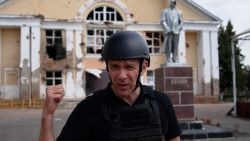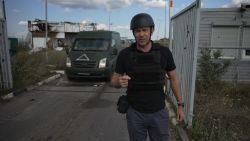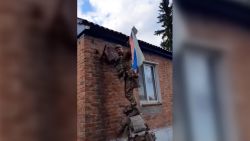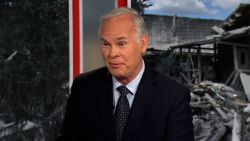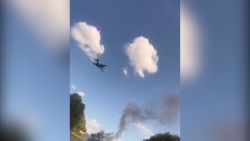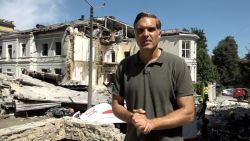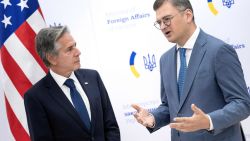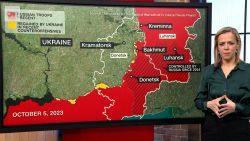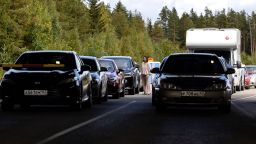Russia’s “partial mobilization” for its war in Ukraine is off to a chaotic start amid protests, drafting mistakes and an exodus of citizens fleeing Russia, as the Kremlin tightens rules around evading military orders.
Some residents in Russia’s Far East Sakha Republic were conscripted “by mistake” despite not being eligible for mobilization, such as fathers of underage children, according to a local leader.
“All who were mobilized by mistake must be returned back. This work has already begun,” the republic’s head Aisen Nikolaev said in a Telegram post, following a meeting on the presidential decree on partial mobilization.
Two senior lawmakers in Russia acknowledged the issues Sunday, saying the mobilization should be carried out “in accordance with the law” and lamenting reports of “erroneous incidents of mobilizing citizens.”
“Such extremes are absolutely unacceptable. And, in my opinion, the harsh reaction we are seeing in society is deserved,” Valentina Matviyenko, the speaker of Russia’s Federation Council, said in a post on Telegram.
In a direct address to Russia’s regional governors, Matviyenko said they were “fully responsible for carrying out mobilization campaigns” in “full and absolute compliance with the announced criteria.”
Vyacheslav Volodin, the chairman of the State Duma, Russia’s lower house of parliament, echoed Matviyenko’s calls for due diligence, adding, “If a mistake is made, it must be corrected.”
Meanwhile, videos circulating on Russian social media appear to reveal the tensions, sadness and confusion that the draft – which began after a Wednesday announcement – has sparked, with scenes of families saying emotional goodbyes and others of recruits arguing about being called up.
One video from Friday appears to show police and National Guard memcbers engaged in scuffles with a crowd, as drafted men board a bus in the Omsk region of Russia’s Siberia.
Russian President Vladimir Putin on Wednesday significantly raised the stakes of his assault on Ukraine for ordinary Russians, with the announcement of an immediate “partial mobilization” in a bid to reinforce his faltering invasion following Ukrainian gains.
The mobilization would only affect Russians with previous military experience, according to Defense Minister Sergei Shoigu, who said 300,000 reservists would be called up. However, the decree itself gives much broader terms, sowing fears among Russians of a wider draft in the future.
Activist groups, such as Free Buryatia Foundation, have said ethnic minorities in Russia are being disproportionately mobilized. CNN has geolocated videos of some of these men being mobilized in Russia’s Far East regions.
Resistance ‘will grow’
The mobilization announcement sparked anti-war demonstrations across the country, which were swiftly cracked down on by police. At least 1,472 protesters have been detained in dozens of cities across Russia as of Saturday, according to the independent protest monitoring group OVD-Info.
It’s also sparked an exodus from Russia as military-age men flee the country rather than risk being conscripted, with video footage showing long lines of traffic at land border crossings into several neighboring countries and surging airfares and sold out flights in recent days.
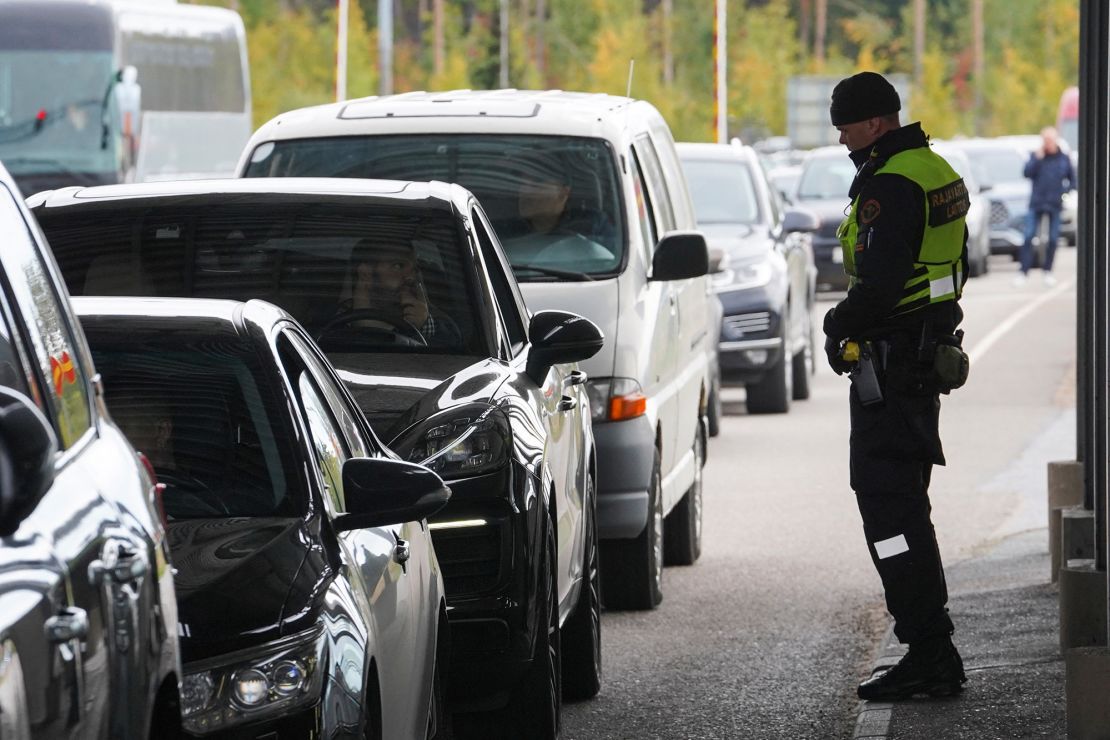
More than 8,500 Russians traveled into neighboring Finland on Saturday by land, according to Finnish Border Guard official Matti Pitkäniitty. The figure represented a 62% increase on the previous Saturday, he tweeted. Nearly 4,200 Russians exited Finland to Russia, he added.
The Vaalimaa border crossing in southeast Finland was the busiest point for Russians coming into the country, Pitkäniitty said in another tweet Sunday, adding that the line at 8 a.m. local time was about 500 meters (546 yards) long.
Ksenia Thorstrom, a Russian municipal deputy from St Petersburg who has left Russia, called the mobilization a “very unpopular decision” in comments to CNN on Saturday.
“I didn’t expect Putin will do this,” Thorstrom said, pointing to protests across the country and adding that “when the first shock goes away, the resistance will grow.”
Ukraine’s President Volodymyr Zelensky during his nightly address on Saturday called Russia’s partial mobilization a “mobilization to graves” and urged soldiers to surrender.
Those soldiers who surrender will be “treated in a civilized manner,” Zelensky pledged, saying that no one in Russia will know that their “surrender was voluntary,” and if they are “afraid to return to Russia and do not want an exchange” Ukraine will “find a way to ensure this as well.”
Tightened rules
But Russia has moved to dissuade military men from dodging the draft or disobeying orders with new laws.
Putin on Saturday signed several amendments to the country’s Criminal Code tightening punishments relating to military service during times of mobilization, martial law or wartime, which are considered “aggravating factors in criminal sentencing,” according to language published on the government’s legal portal. This follows the introduction of amendments by the State Duma on Tuesday.
Under the new rules, Russians who abandon or fail to report for military duty could be subject to up to 10 years in prison.
“The federal law also introduces criminal liability for military personnel for voluntary surrender, as well as criminal liability for looting during martial law, in wartime or in conditions of armed conflict or combat operations,” reads a statement by the Kremlin about the amendments.
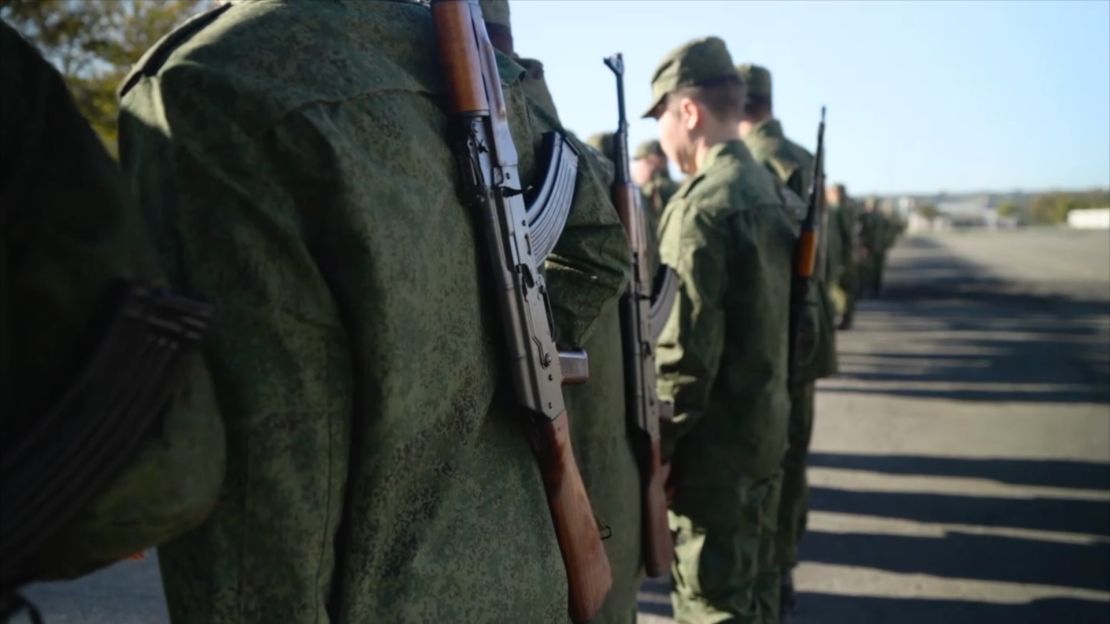
Putin also signed a law Saturday that would make it easier for foreigners serving in the Russian military to apply for Russian citizenship, eliminating the need for such applicants to show a residence permit, as previously required.
In a separate move, Russia’s Defense Ministry on Saturday said it had replaced its deputy defense minister, appointing Colonel-General Mikhail Mizintsev – an officer Ukraine has said led the siege of its eastern port city of Mariupol – for the post.
‘Sham’ referendums underway
The mobilization coincides with voting in a set of referendums to join Russia, which Moscow-backed leaders have said are taking place in four Russian-occupied regions of Ukraine from Friday.
The referendums have been widely denounced by Western governments as illegitimate and a political ploy at a time when Russia has lost significant ground to Ukraine, particularly in the country’s northeast.
They could also pave the way for Russian annexation of the regions, allowing Moscow to frame the ongoing Ukrainian counteroffensive as an attack on Russia itself, potentially giving it a pretext to escalate its assault on Ukraine. Putin last week said he would use “all the means at our disposal,” if he deemed the “territorial integrity” of Russia to be jeopardized.
Overall, turnout on the first day of voting in referendums in the self-proclaimed Donetsk and Luhansk People’s Republics and the Zaporizhzhia and Kherson regions exceeded 15%, claimed Alexander Kholodov, deputy chairman of the Russian state monitoring body, the Commission on Security and Interaction part of the Public Supervisory Commission, according to RIA Novosti.
Ukraine has requested an urgent meeting of the UN Security Council on Russia’s “sham” referendums in the occupied territories of Ukraine, according to Ukrainian Ministry of Foreign Affairs spokesman Oleg Nikolenko.
“Russia must be held accountable for its further attempts to change Ukraine’s internationally recognized borders in a violation of the UN Charter,” Nikolenko said in a tweet Saturday.
CNN’s Jorge Engels and Josh Pennington contributed to this report.





